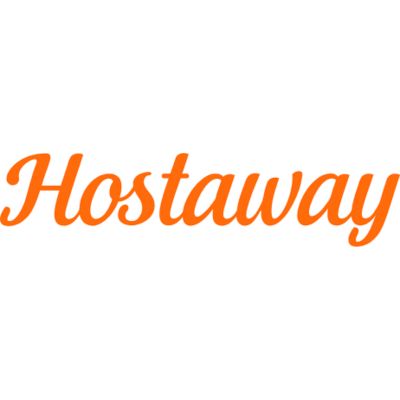Last Updated: January 2024

Vacation rental management might be the most demanding of all types of rental properties to manage, but can also be the most rewarding. Imagine managing an income producing property on the beaches of Hawaii or a cabin right on the slopes of the Mammoth Lakes in California. As the vacation rental industry continues to grow and mature, the importance for property management companies and skilled vacation property managers will continue to flourish.
Vacation Rental Management Definition
Vacation rental management is a specialized type of rental property management that deals with the supervision and administration of vacation rental properties such as short term rentals (e.g. AirBnbs), aparthotels, glamping, and more. Management tasks typically include handling bookings, cleaning, and maintenance, to marketing, and taking good care of the overall guest experience.
Self Manage vs Hire Property Management
Self-managing vacation rentals could provide a greater profit margin but requires hands-on involvement, from marketing to maintenance. Hiring a management company, while incurring additional cost, provides expertise in pricing strategies, marketing, maintenance, and guest services, which can lead to increased occupancy rates. Thus, the decision should be made by weighing the owner’s capacity to manage tasks against the potential benefits of professional management, with the ultimate aim of maximizing the return on investment.
20 Common Vacation Rental Property Management Services
Before the emergence of online marketplace platforms for short-term housing rentals, the vacation rental industry was very niche and predominantly made up of mom-and-pop operators. As anyone with a spare room or house now became able to be a hotelier, some opted to outsource the day-to-day management to “vacation rental management” companies. Below we take a look at some of the most common services offered by vacation rental management companies:
- Booking Management: Overseeing reservations, cancellations, check-ins, and check-outs.
- Guest Communication: Answering inquiries, providing guest support, and managing reviews.
- Listing Optimization: Creating and maintaining listing descriptions and photos, and optimizing them for search visibility on short term rental platforms like Airbnb, VRBO, and Booking.com.
- Pricing Strategy: Implementing dynamic pricing models based on demand, seasonality, and local events to maximize revenue.
- Marketing and Promotion: Promoting the property on social media, via email newsletters, or other online vacation rental platforms to increase visibility.
- Property Cleaning: Arranging professional cleaning services between guest stays to ensure the property is spotless.
- Maintenance and Repairs: Managing routine property maintenance and coordinating any necessary repairs to keep the property in top condition.
- Amenity Management: Ensuring amenities like Wi-Fi, appliances, and entertainment systems are working properly.
- Supply Restocking: Keeping track of and replenishing supplies such as toiletries, kitchen essentials, and linens.
- Security Measures: Implementing and managing security systems, keyless entry systems, or lockbox codes.
- Damage Management: Checking for any damage after each stay, arranging repairs, and managing damage claims.
- Legal Compliance: Ensuring compliance with local regulations regarding short-term rentals, including permits and licenses.
- Tax Management: Managing occupancy taxes and other relevant local, state, and federal taxes.
- Payment Processing: Handling transactions, including collecting rent payments from guests and dealing with security deposits.
- Emergency Response: Being available for emergencies, such as maintenance issues or guest concerns.
- Guest Screening: Checking potential guests for compatibility with the property’s rules and requirements.
- Property Insurance: Managing the insurance policy for the property to ensure adequate coverage.
- Performance Reporting: Providing regular property reports on financial performance, occupancy rates, and guest feedback.
- Interior Design Services: Arranging for interior design or staging services to make the property appealing.
- Local Experiences and Concierge Services: Suggesting or arranging local experiences or services, like tours or grocery delivery, to enhance guest stays.
9 Important Vacation Rental Property Management Ratios and Metrics
Analyzing and understanding the data generated by a vacation rental property can help short term rental investors and managers measure performance, manage operations, and strategize for the future. Below are 9 of the most common key metrics and ratios used in the vacation rental industry:
Occupancy Rate
This is the percentage of time that a property is rented out. Higher occupancy rates generally indicate successful property management, though pricing and guest satisfaction also play crucial roles.
Average Daily Rate (ADR)
This is the average rental income per paid occupied unit in a specific time period. It’s calculated by dividing the total rental income by the number of bookings.
Revenue per Available Unit (RevPAU)
This is a performance metric that considers both the occupancy and the average daily rate. It’s calculated by multiplying the ADR by the occupancy rate.
Net Operating Income (NOI)
This is the income left over after all operating expenses (maintenance, marketing, management fees, utilities, property taxes, insurance, etc.) have been deducted from the rental income.
Cost per Acquisition (CPA)
This measures how much it costs to acquire a new guest, considering marketing and advertising expenses.
Guest Satisfaction Score (GSS)
This can be assessed through reviews and ratings left by guests. High scores can lead to more bookings and higher occupancy rates.
Booking Lead Time
This metric gives insight into how far in advance bookings are made. Knowing this can help in planning for peak periods and pricing strategies.
Length of Stay (LOS)
The average length of guest stays. Understanding whether your property attracts short-term or long-term guests can influence pricing and property marketing strategies.
Turnover Time
This is the time it takes to clean and prepare the property for the next guest. A shorter turnover time can allow for more bookings and higher occupancy rates.
Vacation Property Management Fees
Although the fees dramatically vary based on location, the fee to manage a vacation rental property usually ranges between 10% and 50% of the monthly rental income. Contracts to manage vacation rental properties are typically “fixed fee” or “commission only” where the property management company is solely paid based on a percentage of monthly rental revenue income. Among the standard property management fees, companies may also charge a booking fee, external amenity fee, maintenance fee, and customer service fee.
Vacation Rental Management Software






Vacation rental property management software is specialized software tools that helps hosts and guests coordinate the many various aspects of vacation rental properties. Common features found in these softwares include booking management, payment processing, advertising, and more.
The #1 Rental Property Newsletter
Once a month, we send out an exclusive Rental Property Market Update with top stories, current mortgage rates, building products, and more. No spam and unsubscribe anytime.


Vacation Rental Property Management FAQ
What is the Typical Occupancy Rate for Vacation Rentals?
Occupancy rates can vary significantly based on location and season. In popular vacation destinations, properties can see occupancy rates of 70-80% during peak season, but this may drop during off-peak times.
How to Ensure Vacation Rental Property Stays Booked Throughout the Year?


Successful booking strategies include competitive pricing, excellent guest service, proactive marketing, and offering off-season discounts or promotions. Keeping your property updated, clean, and well-maintained can also attract repeat bookings.
How are Vacation Rental Property Rates Determined?
Rental rates are determined by factors like location, property size and condition, available amenities, local competition, and seasonal demand. Many property managers use dynamic pricing software that automatically adjusts prices based on these factors. Lastly, many of the largest vacation rental companies have plenty of other properties to check comparable rates.
About the Author


Ryan Nelson
I’m an investor, real estate developer, and property manager with hands-on experience in all types of real estate from single family homes up to hundreds of thousands of square feet of commercial real estate. RentalRealEstate is my mission to create the ultimate real estate investor platform for expert resources, reviews and tools. Learn more about my story.










